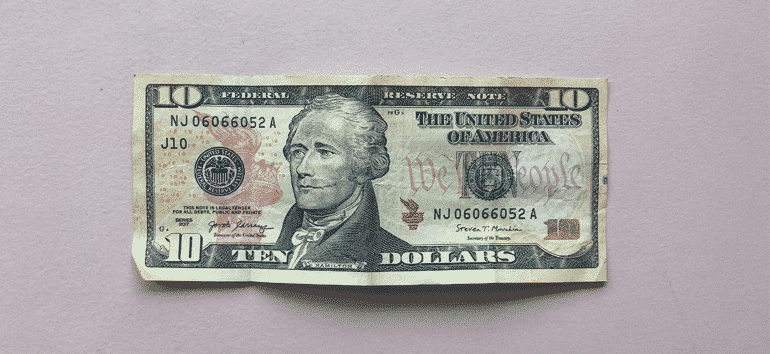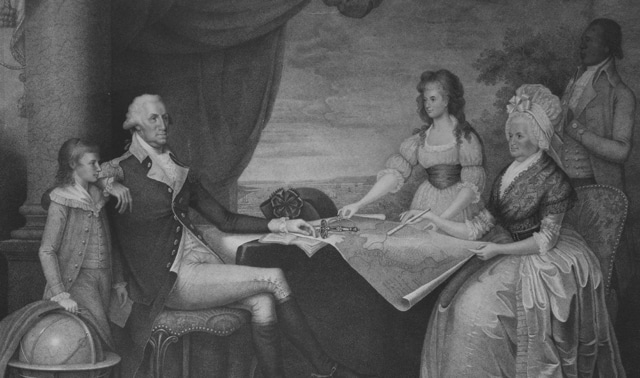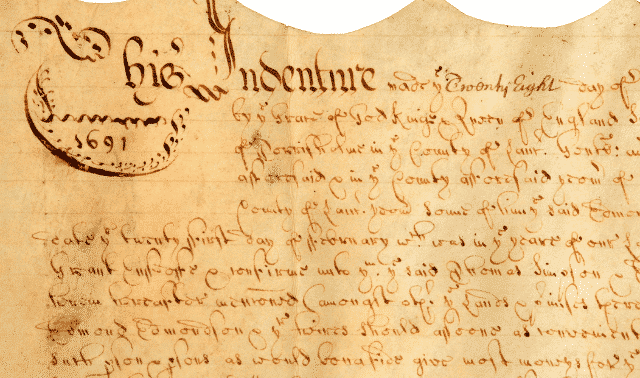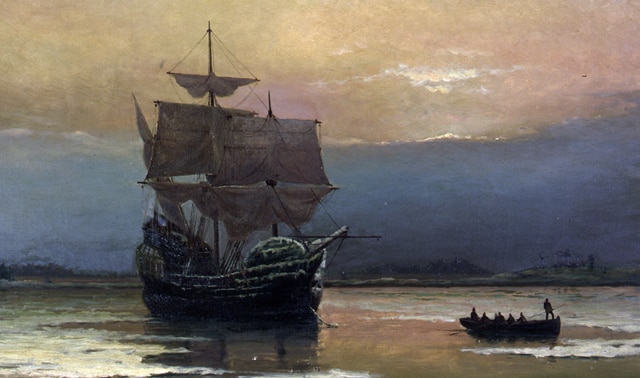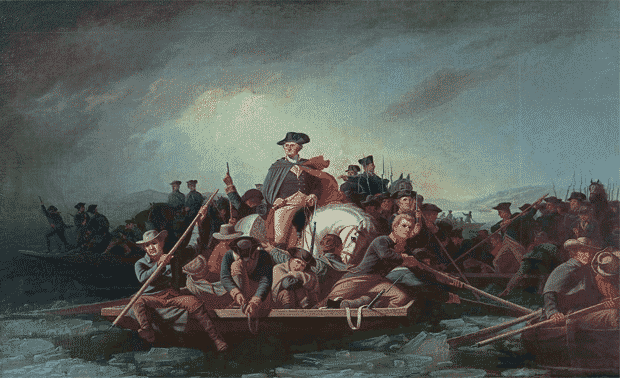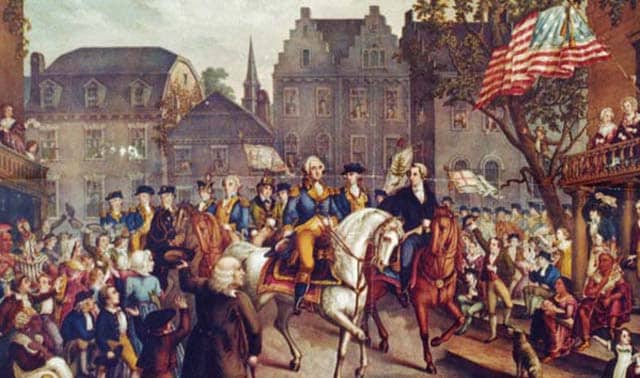Sign up for the Family Tree Newsletter! Plus, you’ll receive our 10 Essential Genealogy Research Forms PDF as a special thank you.
Get Your Free Genealogy Forms
"*" indicates required fields
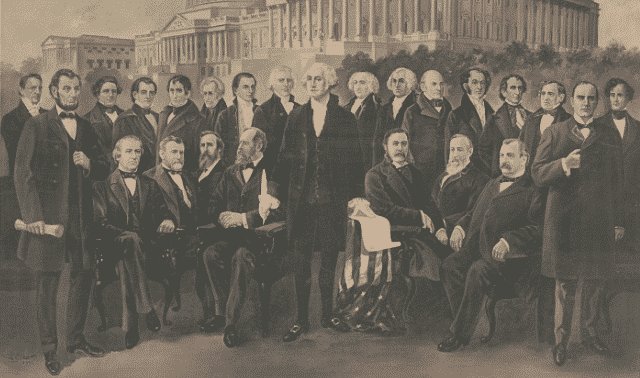
If the idea of presidential blood flowing through your veins—even just a little—gets your heart rate going, you might want to sit down for this: 100 million Americans have family ties to one or more of the 47 US presidents. Gary Boyd Roberts, author of Ancestors of American Presidents, also says almost anyone with New England ancestry is probably connected to dozens of presidents. Those with Quaker or Southern roots have a pretty good chance, too.
Perhaps you’ve heard a family story about your great-great-uncle being the cousin of Ulysses S. Grant. Maybe all those Washingtons or Lincolns in your family tree got you wondering. Or, even without evidence, could be you’re just curious if there’s any familial connection to the highest office in the land.
1. Start with Recent Ancestors, and Work Backward in Time
Before you start marching around the house singing “Hail to the Chief,” sort out what you already know about your family history. While you may be absolutely confident you can make that connection to Thomas Jefferson, first you have to research your own genealogy, advises professional genealogist Rhonda McClure. “For beginners who have heard they are related to one of the presidents, I always tell them the same thing: It is important to research your own line thoroughly,” she says. Only then will you “begin to see familiar names and localities [in] the ancestry of the different presidents.”
If there is a president in your family’s past, most likely he was someone’s cousin, and the connection lies somewhere in the 1700s or earlier, McClure notes. To speed your search, start with the ancestral line you already know the most about, that goes back the furthest.
Norris Taylor, a Los Angeles family historian who has traced himself back to 13 presidents, says it also helps to research your immigrant ancestors’ grandchildren and their spouses. “Many [published] ancestral lines seem to ‘stop short’ of an immigrant, in many instances by about three generations,” he says. Visit Taylor’s “presidential gallery” to see the results of his presidential roots research.
When you start searching, be prepared for disappointment — not everyone, of course, has presidential ancestors. Those who descend from German or Scotch-Irish immigrants have only a “slim chance” of having a president in their family trees, Roberts says.
And don’t put too much stock in family lore about White House links. Most likely those notions stem from the 19th-century assumption that anyone with a president’s surname must be related to him, says Roberts. “Most of these are false.”
2. Research Published Genealogies
Have you ever heard the expression, “If you want your genealogy traced for free, run for public office”? All presidents’ family histories have been traced by a variety of researchers, and much of this research is accessible to you. One place to start digging is Roberts’ Ancestors of American Presidents. Pick a president, any president, and you’ll find a list of surnames in his pedigree.
An online alternative to Roberts’ book is Geneagraphie.com’s Presidents Database, based on The Presidents, published by Funk & Wagnall’s. Search the presidential index (ordered by president) or scan the master index of surnames linked to presidential family trees. For example, when I scanned the index for surnames in my family tree, I came across the name “Nan Britton” (Britton being one of my family surnames). I clicked on her name and found her birth date, her spouse (Warren G. Harding) and their child’s name. Alas, she was not my ancestor, but at least I ruled her out!
McClure suggests checking out presidential ancestries included in other online databases, such as FamilySearch.org’s Genealogies.
3. Explore Other Presidential Relatives: First Ladies and Mayflower Ancestors
If you discover you’re not related to a president, don’t despair. How about first ladies? Research their maiden names and birth/death dates. Search the National First Ladies’ Library, which offers a comprehensive, annotated bibliography of books, manuscripts, journals, diaries and other materials about and by presidents’ wives.
Were your ancestors passengers on the Mayflower? If so, they sailed with (or perhaps were) the ancestors of several presidents, including John Adams, Ulysses S. Grant and Franklin D. Roosevelt. Their Mayflower ancestors’ names can be found at the Mayflower Society.
Have you ever considered—or even heard of—the 14 “forgotten” presidents who served under the Articles of Confederation before the Constitution was ratified in 1789? Among them were John Hancock, John Jay, Thomas Mifflin and Nathaniel Gorham. A complete list and biographical descriptions of these precursor presidents can be found in The American Patriot’s Handbook by George Grant (Cumberland House Publishing).
4. Study the Lives of the Presidents
Even if you have no genealogical connection to a president, you can still enjoy climbing their family trees. How did each president’s family history and pre-White House life affect him? You’ll find excellent summaries in the “Life Before the Presidency” essays from the US Presidents section at Miller Center at the University of Virginia.
Learn, for example, how George Washington was among the third generation of Washingtons born in the British colonies.
Another way to research presidential pasts—for family history and otherwise—is through their libraries. The papers, records and other historical materials of presidents from Truman through Trump are housed in their own repositories, with adjoining museums. This network of presidential libraries contains millions of records, photographs and multimedia resources, as well as family heirlooms and items collected by first families. For links to individual libraries, museum hours and contact information, go to the National Archive’s Presidential Libraries page.
Enjoy your quest for shared ancestry with America’s leaders. But if you exhaust the many avenues for research and still don’t find what you’re looking for, maybe you should consider running for public office. After all, you’ll get your genealogy traced for free.
Presidential and Royal Family Trees
Discovering a presidential progenitor would thrill many researchers. But here’s an extra treat—if you can connect your family to the Oval Office, there’s a good chance you also have kings and queens in your ancestry.
Many US presidents descend from royalty. For example, the Roosevelt family traces back to King Edward I of England. In his book Genealogy of the Wives of the American Presidents and Their First Two Generations of Descent (McFarland), Craig Hart links some first ladies’ lineages to Charlemagne and William the Conqueror.
Experts also claim that these regal pedigrees predict presidential-election outcomes better than polls and pundits. Burke’s Peerage says the candidate with the most royal blood has won every US presidential race.
– Grace Dobush
A version of this information appeared in the December 2004 issue of Family Tree Magazine.
DNA and Presidential Family Trees
Convinced you’re kin to Thomas Jefferson, but can’t prove it using published genealogies? Maybe you should turn to science instead. Participants in the USA Founding Fathers’ DNA studies are looking beyond traditional sources and seeking their proof from cheek swabs.
Website owner John Roper isn’t organizing the studies himself, but encourages descendants of US presidents to start their own studies to crack the founding fathers’ DNA codes. Three years ago, he began a surname project to find male-line relatives of Benjamin Franklin through Y-chromosome tests from FamilyTreeDNA. “Then I got the idea that I should urge family members of other founding fathers to try to determine the Y-chromosome markers of those founding fathers,” he says. Established presidential projects focus on George Washington, John Adams, Thomas Jefferson and Abraham Lincoln.
How do these genetic-genealogy studies work? Using Y-DNA test data, they seek to identify men with the presidents’ surnames who’re related to (not descendants of) those commanders in chief. The genetic information contained in the Y chromosome passes directly from father to son, so it’s possible to determine if two men share an ancestor by comparing genetic markers (patterns in specific locations within the DNA). This kind of DNA testing can’t prove that you descend from a particular person, but it can show whether you come from the same family.
Suspected male-line kin who share the founding father’s last name are eligible. Each study participant pays a fee to undergo FamilyTreeDNA’s test—you simply collect a sample with the supplied cheek swab, send it in and wait for your results. Visit Roper’s website for more information about the projects.
– Grace Dobush
A version of this information appeared in the December 2004 issue of Family Tree Magazine.
Resources for Finding Presidential Ancestors
Websites
- The American Presidency Project: Peruse hundreds of articles, speeches, photographs and other items associated with the nation’s highest office.
- Cyndi’s List-US Presidents: Link to dozens of websites relating to presidential family history.
- The Internet Public Library’s Presidents of the United States (POTUS): Named after the Secret Service’s acronym for President of the United States, this site gives you the scoop on every US chief executive.
- US Presidents: This educational resource from the University of Virginia’s Miller Center serves as a chief source for presidential profiles and biographical information.
- US Presidents Historical Sites: This site claims to be the web’s most comprehensive site for presidential resources.
Video
- The American President series (PBS): Documentary series profiling 41 of America’s chief executives.
Genealogy and History Books
- The American President, companion book to PBS documentary, by Philip B. Kunhardt jr., Philip B. Kunhardt III and Peter W Kunhardt (PBS)
- American Presidential Families by Hugh Brogan, Charles Mosley and David Prebenna (MacMillan Library Reference), which offers biographical details, descendant charts, male-line ancestry and collateral descendant charts for each president.
- The American Presidents: An Annotated Bibliography by Norman S. Cohen (Salem Press)
- Ancestors of American Presidents by Gary Boyd Roberts (Boyer)
- Burke’s Presidential Families of the United States of America by Marcus Cunliffe, Lesley Hume Cunliffe and David Williamson (Burke’s Peerage), a guide to the first families of America, covering the character, career, writings, ancestry, wives, siblings and descendants of 39 US presidents from George Washington to Ronald Reagan.
- The Descendants of the Presidents of the United States of America, 2nd revised edition, by Walter L. Zorn (W. L. Zorn, out of print)
- First Families: The Making Of An American Aristocracy by Nathaniel Burt (Boston & Toronto, out of print)
- Presidential Sites: A Directory of Places Associated with Presidents of the United States by William G. Clotworthy (McDonald & Woodward Publications)
- The Reader’s Companion to the American Presidency edited by Alan Brinkley and Davis Dyer (Houghton Mifflin)
- Records of the Presidency: Presidential Papers and Libraries from Washington to Reagan by Frank L. Schick (Oryx Press, out of print)
- To the Best of My Ability: The American Presidents by James M. McPherson (DK Publishing)
- Who’s Buried in Grant’s Tomb? A Tour of Presidential Gravesites by Brian Lamb (C-Span)
Related Reads
A version of this information appeared in the February 2001 issue of Family Tree Magazine. Last updated: January 2025
FamilyTreeMagazine.com is a participant in the Amazon Associates Program, an affiliate advertising program. It provides a means for this site to earn advertising fees, by advertising and linking to Amazon and affiliated websites.



